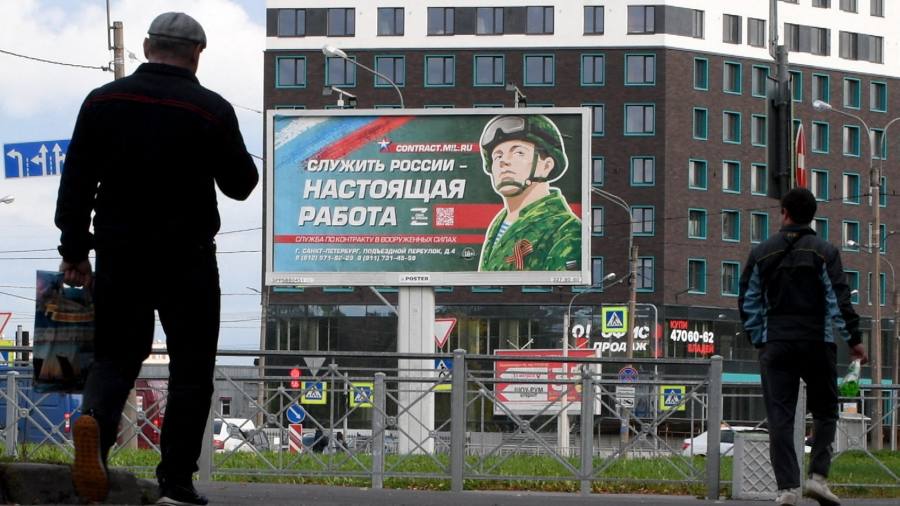
The success of Ukrainian forces in reclaiming swaths of their country brought jubilation, followed by concern over how Vladimir Putin — humiliated, pressured and running out of options — would retaliate. The answer became clearer on Wednesday: the Russian president will mobilise 300,000 reservists to support what he depicts as an existential struggle against the west, and indicated that Russia would try to annex parts of Ukraine through sham referendums. He explicitly raised the prospect of nuclear conflict.
Putin’s declaration must be taken for what it is: a cynical rewriting of history designed to coerce Ukraine and its western backers to accept Russia’s gains. Their resolve should not weaken in the face of such sabre-rattling, which amounts to an admission of the huge error Putin has made in invading Ukraine. He cannot fix it by calling up reservists. That is not to say his nuclear threats should be dismissed: they are serious and, if mishandled, risk catastrophe. A cornered, nuclear-armed autocrat is a dangerous and unpredictable one — for his own people, for Ukraine, and for the world.
Clearly, mobilisation undermines two conceits that thus far have sustained the support, or at least the tolerance, of the Russian people. First, that this is a “special military operation” rather than out-and-out war, nomenclature that the regime has insisted upon on pain of criminal sanction. Calling it by its true name in Russia drags with it not only the long shadow of the second world war, but also connotations of more recent, grinding conflicts in Afghanistan and Chechnya. It is unclear how ordinary Russians will react now; there is a reason why Putin has waited six months to bow to hardliners’ demands for mobilisation, and is still resisting their calls for full conscription.
Second, calling up reservists underscores just how depleted and morale-sapped Russian troops have become, even as they have — according to a growing mountain of evidence — tortured, maimed and killed civilians. Ukrainians have succeeded in repelling Russian forces not only in Kharkiv in the north-east but also threaten those in the Donbas, whose “liberation” was one of Putin’s original war aims.
Yet mobilisation will do little to bolster Russian positions in the short term. Despite recent efforts to create a standing reserve force, Russia does not possess western-style reserve units that can be inserted seamlessly into conflict, beyond a few thousand who receive regular training. Getting the rest battle-ready will take time. Questions also linger over Russia’s supplies of military equipment due to the effect of sanctions.
Of more immediate concern are Putin’s “referendums” in Ukraine’s occupied regions over whether to join Russia. Joe Biden is right to call them shams, whose results are foregone conclusions. It is farcical to think that free and fair plebiscites could be set up in a matter of days under the barrel of a gun. They are, rather, designed to be an imprimatur of Russia’s skewed world view of itself as a defender. Tactically, they are meant to halt a Ukrainian counter-offensive into what Russia would designate as its own territory. The Kremlin has long reserved the right to use all possible means, including nuclear weapons, to protect its country and people.
This does not represent a new nuclear threat, but it steps up the rhetoric. For western leaders, many of whom are meeting at the United Nations (along with an increasingly uncomfortable China and India), Putin’s bombast is evidence their strategy of support and supplies to Ukraine is working. This may not amount to a final roll of the dice by Putin but it is clearly a desperate one. The world’s response must be as cool as it is resolute.